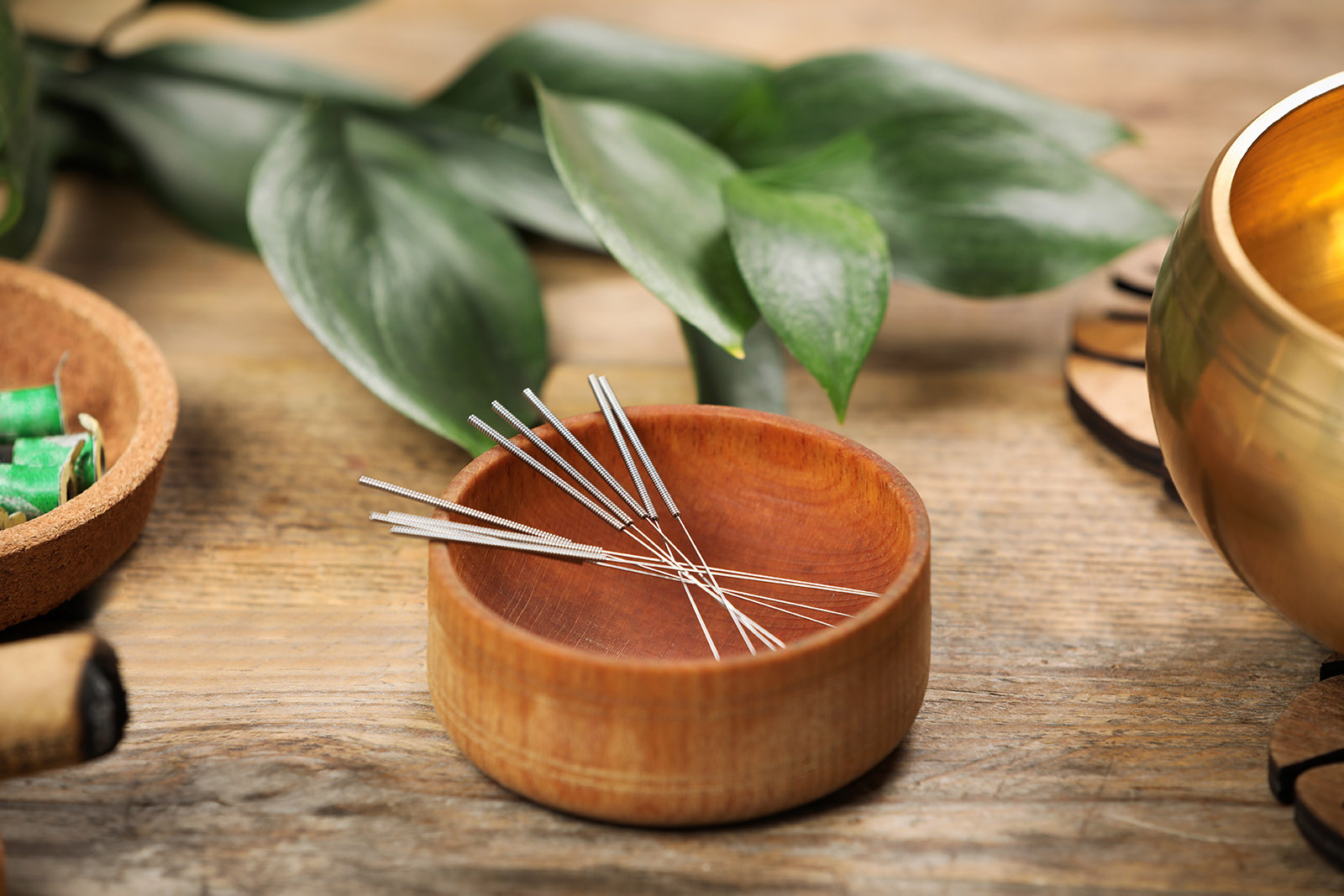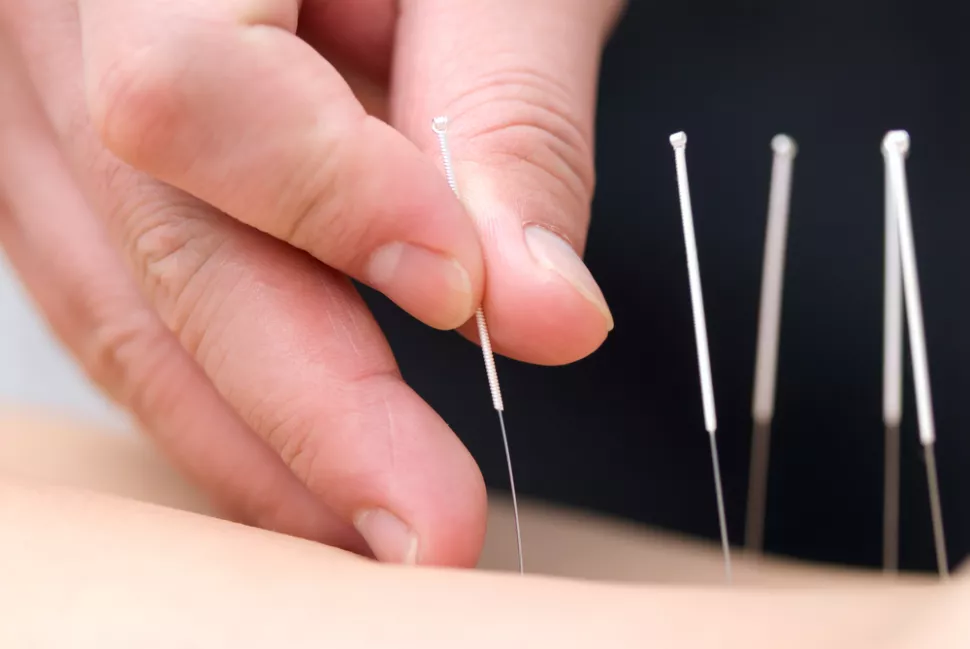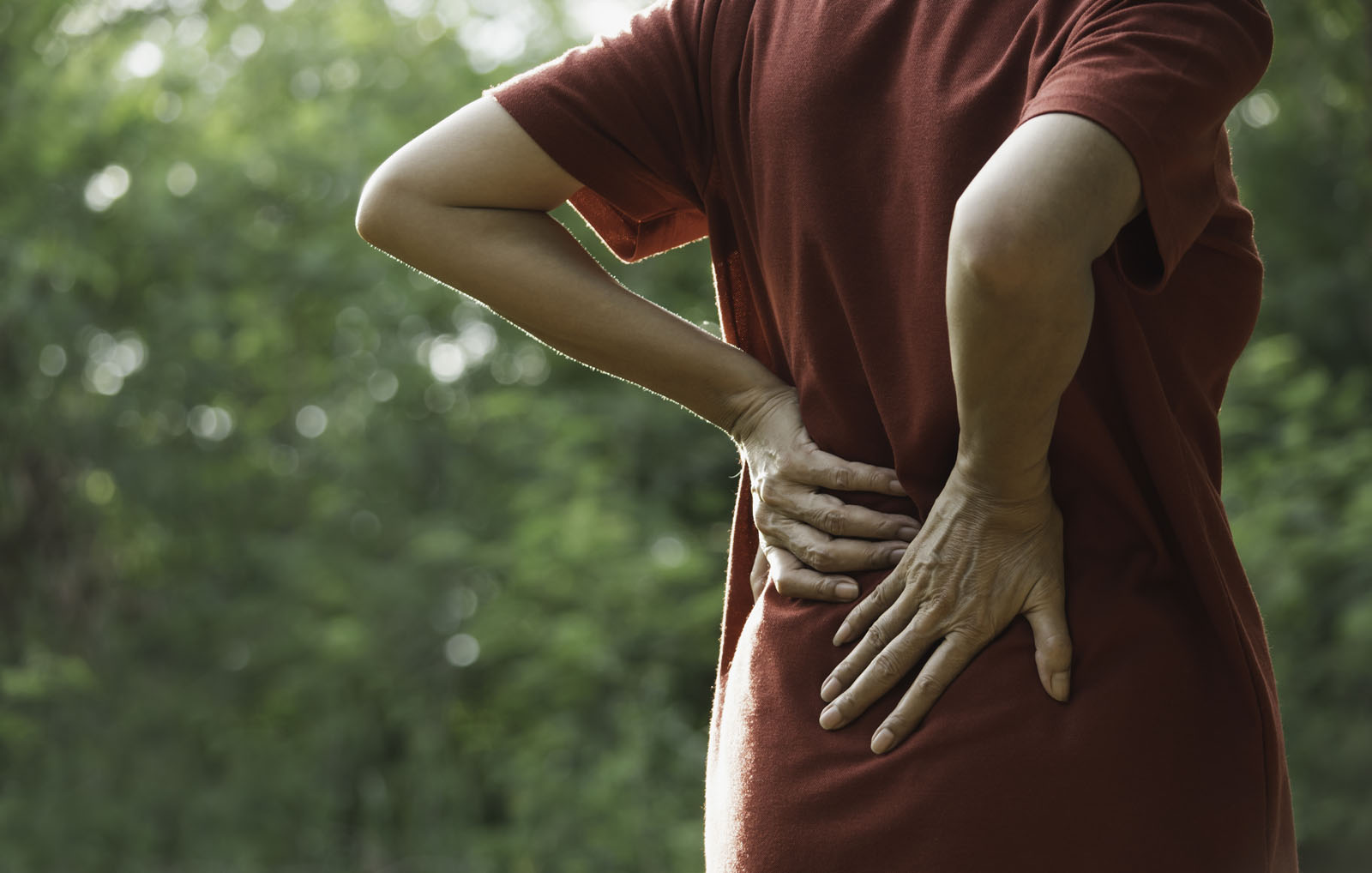
Non-Drug Treatments

Acupuncture
Acupuncture is the use of a solid, flexible, atraumatic needle for puncturing the skin at symptomatic points and points distant from symptoms, with retention of needles and expectation of local and whole body effects.
Acupuncture has been practiced in China for more than 2000 years. The traditional theory is that health is a state of balance, while blockage in energy flow creates imbalance and symptoms, leading to illness. In the most basic sense, attention to diet, relaxation and moderate exercise promotes free flow of energy, balance, and health.
Scientifically, we know that acupuncture helps pain by activating natural pain-modulating systems in the brain and spinal cord, and by promoting the release of endorphins, cortisol, and sex hormones into the circulation. These natural substances have whole-body effects on pain, inflammation, and well-being. Acupuncture also has a balancing effect on the autonomic nervous system and local effects on blood flow and tissue healing.
Western science has shown that acupuncture can help:
- Modulate the autonomic nervous system
- Modulate sex hormones
- Reduce stress hormones
- Modulate inflammatory mediators
- Improve blood flow
- Stimulate endorphin release
Dr. Greg Chernish has extensively studied and taught Chinese, Japanese, and western medical acupuncture. He has developed an approach that includes traditional Chinese theory, western medical science, and tissue palpation rooted in Japanese and western trigger point theory. Acupuncture is not effective in those taking narcotics, as narcotics interfere with the natural endorphin release that acupuncture stimulates

Dry Needling
Dry needling is a technique used to soften and eliminate painful muscle knots. It involves use of a hypodermic or acupuncture needle to deactivate trigger points and tender points with manual stimulation of the needle.
Dr. Greg Chernish incorporates dry needling into his acupuncture treatments when appropriate, never as a stand-alone treatment.
Different treatments may be used for each person with the same problem, and one treatment may be used to treat different conditions.

Trigger Point Injections
What is a Trigger Point?
A trigger point is a tight knot or band of muscle that forms after trauma or after overuse injuries. It prevents the affected muscle from fully relaxing, and may lead to restricted range of motion in the affected area. A trigger point may also produce pain radiating from the involved area.
Trigger points may occur following injury or surgery, or in association with chronic conditions such as tension headaches, chronic back pain, herniated discs, and fractures.
What is a trigger point injection?
With this therapy, local anesthetic is injected into a trigger point in order to relax the tight musculature and to relieve pain. Trigger point injections are typically done in the context of muscle stretching and strengthening exercises to prevent pain from recurring.
Local anesthetic or “freezing” (Lidocaine) is injected into the trigger point and any related tender points. This very safe procedure is not painful and takes only a few minutes. The treated area becomes numb for about 30 minutes to an hour. Pain should improve over the next one or two days as the tight muscle relaxes.

What to expect?
Most patients require several sessions to treat all the tight and tender areas in the painful region. Usually, we will schedule a series of three-six trigger point injections treatments, 1-2 weeks apart.
Side-effects are rare but may include mild tenderness and bruising. You can expect to continue normal activities on the day of the injection.
As symptoms improve, Dr. Chernish will prescribe stretching exercises and strengthening exercises.
The goal of the injections and follow-up stretching and strengthening exercise is to completely eliminate the pain, improve range of motion, and ensure that the pain does not return.
For some patients, trigger point injections are more beneficial than acupuncture-type dry needling, particularly in heavily-muscled individuals, where the muscle is very tight or has been tight for a very long time.
Call us for more information,
or to schedule an appointment.
204-452-4948


